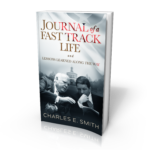The Mueller report spotlights two conflicting faces of the highly-charged Washington political scene — secrecy and leaks. See “Turn in Your Smart Phones.” Ironically, both ‘faces’ are featured in the pages of my recently published book. – CES

My debut into the world of politics occurred in late January, 1970. My mentor, John Seigenthaler, then editor of the Nashville Tennessean, had invited me to meet with the inner circle of the campaign team for John Hooker’s quest for the governorship of Tennessee.
Most of the team I knew, so the comfort level was great as I walked through a makeshift receiving line to greet each member of the team. Toward the end of the line was a stranger – a craggy faced, disheveled character by the name of Paul Corbin, known to his friends as the Commander. As I had done with the others, I extended my hand of greeting.
Corbin stared straight into my eyes, refused to extend his hand, and sarcastically exclaimed with a gravelly voice, “G__ d___ academic, what the hell do you know about running a political campaign? Seigenthaler, where in the hell did you find this joker.”
For a twenty-nine-year-old political novice, this was a rude awakening. Somehow, however, I maintained my composure and simply said, “Mr. Corbin, it is a pleasure to meet you.”
Seigenthaler roared with laughter at Corbin’s outburst and assured me that it was not personal. “The Commander doesn’t really like or trust anyone,” he said. “He was Bobby’s (Kennedy) hatchet man, and when Bobby was assassinated, his inner circle drew straws to see who would take care of the Commander, and I (Seigenthaler) lost. Now we have to put up with him.”
It was the only black mark on an eighteen-hour day that culminated with my acceptance of the appointment as Hooker’s campaign press secretary. However, the incident with Corbin was a precursor of a series of events three months later that provided an important lesson on the value and necessity of maintaining confidences and loyalty within an organization, a lesson that served me well throughout my professional career.
I assumed my duties as press secretary on April 1, 1970, some two months before the candidate hit the campaign trail. In those early days, I spent eighteen hours a day in the office preparing for the campaign, cultivating media contacts, developing strategies, and shaping messages.
In the very first week on duty, Corbin stopped by my office about 6:00 p.m., pulled up a chair in front of my desk, and began to chat. Initially, it was small talk, a soft getting-to-know-you series of comments with occasional non-consequential questions. Given his rough and rude greeting three months earlier, I was more than a bit nervous about his intentions.
The visits, lasting usually about an hour, became a daily occurrence. Each day, Corbin began to shift from casual conversation to talk that was more focused on the upcoming campaign. He began to make some derogatory remarks about the candidate and his key advisers. He began to ask leading questions, seemingly trying to solicit my agreement with his expressed negative views about the campaign, the candidate, and the management team. I listened respectfully to all he said, but I never once took the bait. Not once did I speak out of school.
Finally, after about four weeks of the nightly visits, Corbin disappeared from my radar screen. Never again did he visit my office. To say the least, I was puzzled about his agenda. Then one day, the truth came out. We were in an inner circle meeting when Seigenthaler reported that Corbin had concluded that another newcomer to the campaign could not be trusted and should be fired.
After the meeting, I pulled Seigenthaler aside and said, “I think I know now why Corbin visited my office every night for a month.” A sly but knowing grin crossed Seigenthaler’s face. “Did I pass the test?” I asked.
His response said it all. “He quit coming to your office, didn’t he?”
I realized then that the training and experience I had gained in the early years of my career in journalism and university public relations work had prepared me well for the challenges that were ahead. I knew the importance of maintaining confidentiality, non- compromising loyalty to the individual who signed your paycheck, and commitment to the mission.
-adapted from Journal of a Fast Track Life, Chapter 17, © 2018 Charles E. Smith. All rights reserved.

